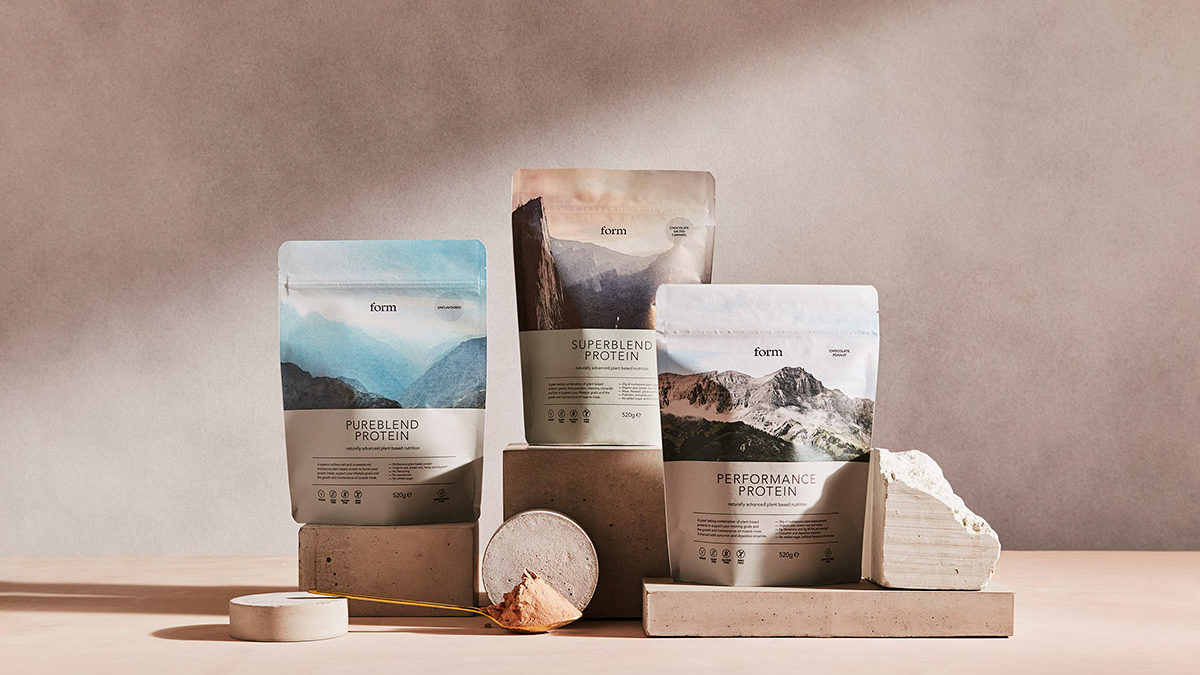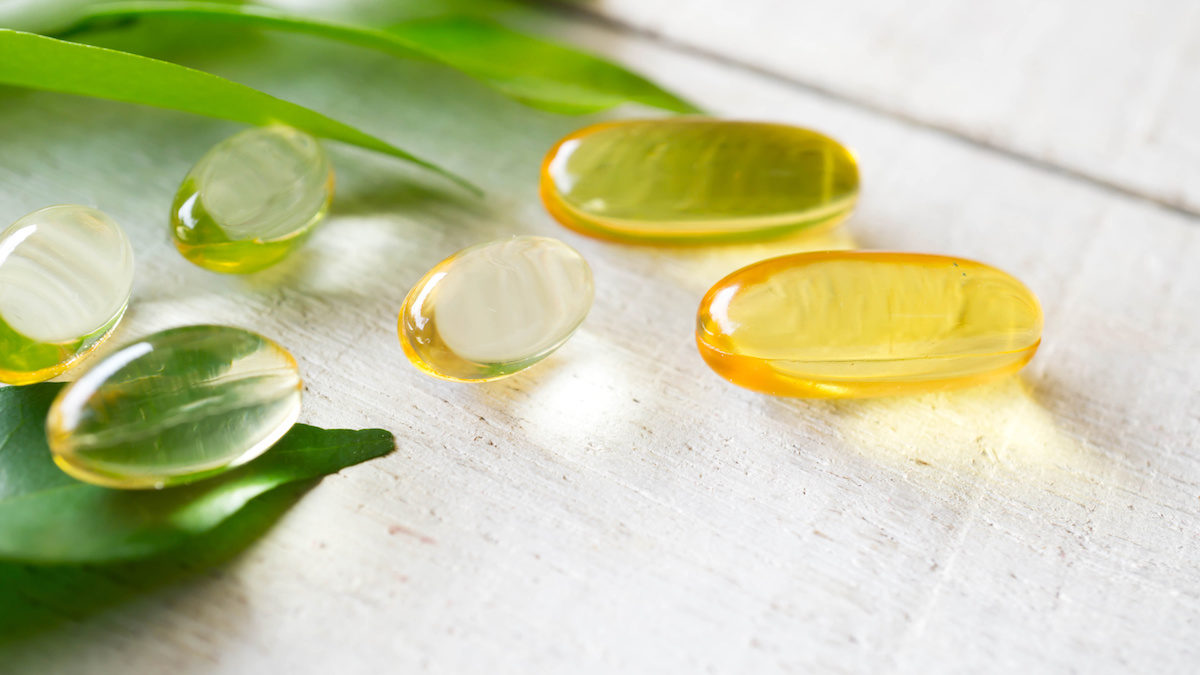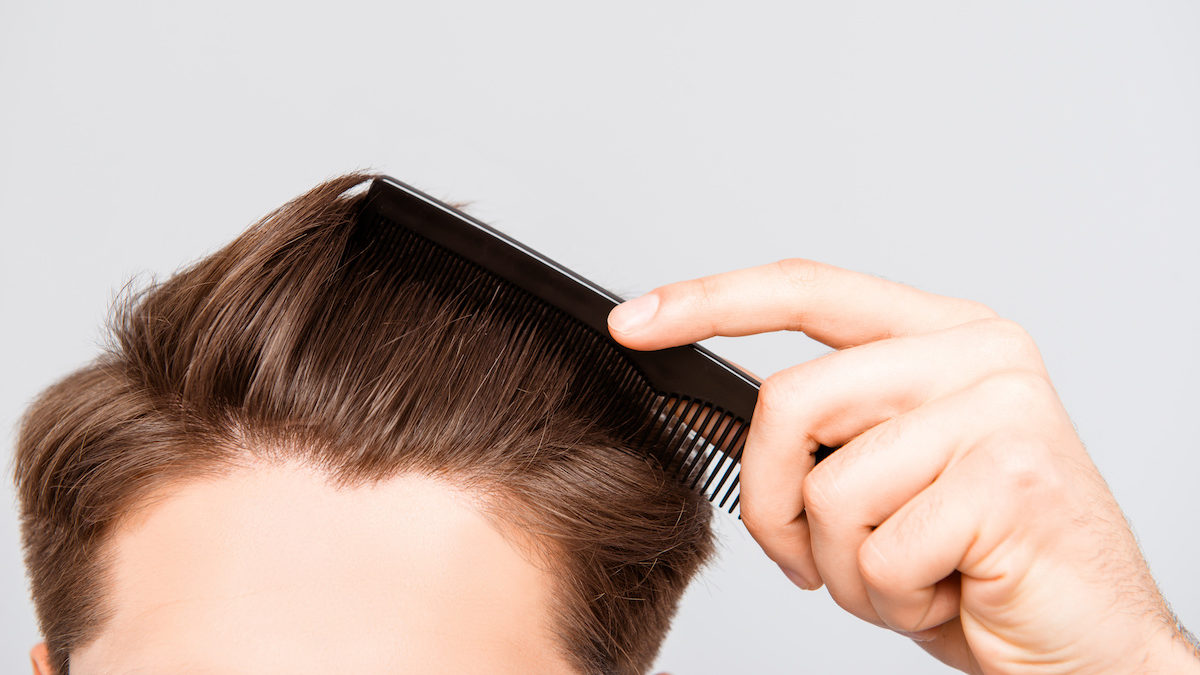Protein Beyond Muscle: How the Nutrient Benefits Our Skin, Hair, and Nails

Protein equals muscle. Well, it’s a bit more complicated than that, but yes, the macronutrient is essential for muscle growth, strength, and repair. We understand that in our modern culture where the gym has become hyper-ubiquitous, most people look at protein, and certainly shakes, as solely something to help fuel their muscles. But you might not know that protein consumption is fulfilling a huge swathe of other bodily needs.
In previous articles, our head of nutrition, Dr Adam Collins, has examined protein and bone health, protein and energy balance, and protein and healthy ageing. In this final part of the series, it’s the turn of our other resident health expert, Vanessa Rohmig, who looks into the close relationship between our protein intake and healthy skin, hair, and nails.
How Protein Benefits Our Skin, Hair, And Nails
Our skin, hair, and nails are affected by what we eat. When we’re eating an unhealthy diet, it affects our collagen, keratin, and elastin, three of the most abundant proteins in our bodies, which in turn affects the health of our skin, hair, and nails. When we consume food, our bodies break it down into its usable components, extracting vitamins and minerals, converting sugars to energy, and utilising protein to repair and rebuild tissues of muscles, skin, and organs.
Protein is found in every living cell in our bodies, made up of amino acids, the building blocks of every cell. We need the essential amino acids for optimum health and in this case for our skin, hair, and nails. Amino acids are found in all-natural foods in varying amounts. Here at Form, we favour plant-based protein sources which can offer dietary fibre that helps our gut function at its best, as well as omega-3s, antioxidants, and micronutrients which all boost the health of our skin, hair, and nails.

There’s a myth that you need to combine beans and grains to have a complete amino acid profile, but the truth is as long as you’re eating enough calories, protein, and other important nutrients, you don’t have to worry about trying to consciously combine the proteins to make it “complete” as your body combines and recycles amino acids as it processes them.
Protein And Glowing Skin
Getting into the specifics, let’s first look at the effect of protein on our skin, and more specifically the role of collagen, one of the most common proteins found in the body (90 percent of connective tissue) and the glue that holds us together.
Collagen is a big contributor to our skin health — our collagen production drops as we age, which contributes to wrinkles and sagging skin. Collagen production starts with procollagen, a molecule made from vitamin C and protein. These molecules bind together to create fibrils, which accumulate until they become structured collagenous fibres. This is what provides the structural element to our skin, hair, and nails.
For our bodies to produce collagen, it needs polysaccharides, vitamin C, silica, zinc, copper, and protein (1). As protein is one of the foundational elements in collagen synthesis, it’s important to make sure you’re eating enough of it.
Vitamin C, Protein & Skin Health
Vitamin C is another key nutrient to note. Without adequate amounts of vitamin C, your body can’t store or form collagen. (2) Vitamin C is needed to turn the amino acid proline into hydroxyproline which is key to stabilising the collagen structure. (3) So if you’re not eating enough vitamin C, through fruits and vegetables for example, you get poor collagen structure formation which leads to brittle nails, hair and poor skin health.
Animal-based collagen supplements may be trendy these days, but to boost your production of collagen, it’s not about eating collagen protein through bovine or fish collagen products, but instead providing the body with the building blocks it needs to make it.

Beware of Dairy Sources
Just as you should be wary of animal-based collagen supplements, whey protein shakes might have a detrimental effect on your skin, with research showing a strong link between dairy and one of our most common, and frustrating, skin conditions, acne (4).
One particular study for example found that for each glass of milk consumed per day, subjects had a 12 percent higher risk of developing acne (5). Dairy and the high levels of the amino acid leucine have been found to increase production of the hormone IGF-1, which leads to acne, primarily through increasing sebum levels, an oily, waxy substance that clogs pores and causes spots, to excess. On the other hand, low IGF-1 levels prevent the occurrence of acne, while studies found people who eat a vegan diet had the lowest levels of IGF-1 (6).
Protein And Healthy Hair
Hair is primarily made up of a protein called keratin, which is also the structural protein found in our nails and skin. When we’re eating too little calories and protein, or eating an unhealthy diet, because our hair, skin, and nail health is not our body’s priority, it will lead to our body prioritising other functions, leading to slow hair growth as well as dry, brittle and weak hair. Prolonged calorie restriction will also lead to hair loss.

(A Note On Iron Too)
Another nutrient to consider for hair health is iron which helps with nourishing the hair follicle, and improving the density and quality of your hair. Favour non-heme iron foods found in plants such as leafy greens and beans, as our bodies can regulate non-heme iron unlike heme iron sources, meaning you’ll absorb only what is needed and prevent it rising to harmful levels.
To boost iron absorption, consume these foods with a vitamin C source such as citrus and berries. Another vitamin to consider is biotin which is important for keratin growth, and can be found in sweet potatoes, mushrooms, avocados, nuts and seeds, while zinc and magnesium are also important minerals for hair health.
Protein And Your Nails
Nail conditions like dry, brittle nails, slow growth as well as things like spoon nails, ridges, and nail discolouration, are telltale signs of nutrient deficiencies and could even indicate chronic diseases and other conditions (With more severe nail conditions, it’s advised to seek medical help).
To take care of our nails in general, the advice is the same as looking after our hair as our nails are also made up of keratin. Without consuming adequate protein, the body won’t have the proper building blocks to create strong, healthy nails.
Another mineral to note is silica which is one of the most important minerals for nail health, with studies showing soft and brittle nails can indicate a deficiency in silica (7).
References:
1) Mangels A, Bone nutrients for vegetarians, The American Journal of Clinical Nutrition, Volume 100, Issue suppl_1, July 2014, https://academic.oup.com/ajcn/article/100/suppl_1/469S/4576666
2) Boyera N, Galey I, Bernard BA. Effect of vitamin C and its derivatives on collagen synthesis and cross-linking by normal human fibroblasts. Int J Cosmet Sci. Jun 1998, https://pubmed.ncbi.nlm.nih.gov/18505499/
3) Peterkofsky B. Ascorbate requirement for hydroxylation and secretion of procollagen: relationship to inhibition of collagen synthesis in scurvy. Am J Clin Nutr. Dec 1991, https://pubmed.ncbi.nlm.nih.gov/1720597/
4) B C Melnik. Diet in acne: Further evidence for the role of nutrient signalling in acne pathogenesis. Acta Derm. Venereol. 2010, https://pubmed.ncbi.nlm.nih.gov/22419445/
5) Penso, L, Touvier, M, Deschasaux, M, Hercberg, S, Ezzedine, K and Sbidian, E. Association between adult acne and dietary behaviors: Findings from the NutriNet-Santé Prospective Cohort Study. JAMA Dermatology,156(8), 2020,
jamanetwork.com/journals/jamadermatology/article-abstract/2767075
6) Ben Amitai, D. and Laron, Z. Effect of insulin‐like growth factor‐1 deficiency or administration on the occurrence of acne. Journal of the European Academy of Dermatology and Venereology, 25(8), 2011,
onlinelibrary.wiley.com/doi/abs/10.1111/j.1468-3083.2010.03896.x
7) Araújo LA, Addor F, Campos PM. Use of silicon for skin and hair care: an approach of chemical forms available and efficacy. An Bras Dermatol. 2016, https://www.ncbi.nlm.nih.gov/pmc/articles/PMC4938278/
Want to find out more about how to boost your skin, hair and nail health? In this six day course we cover all the fundamental basics, from the irritants and ingredients to avoid to the vital role our nutrition plays in it all. Sign up here.


















